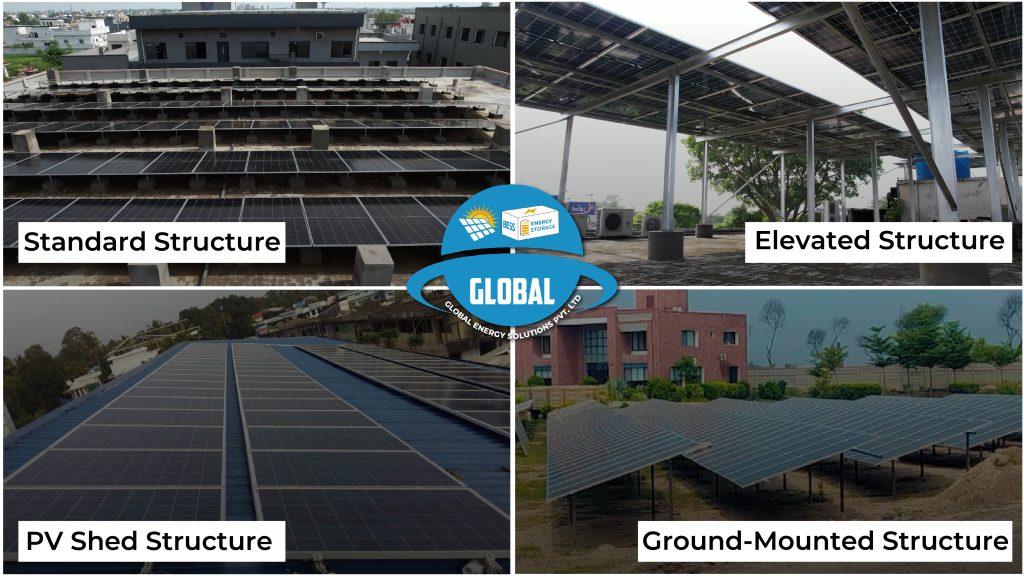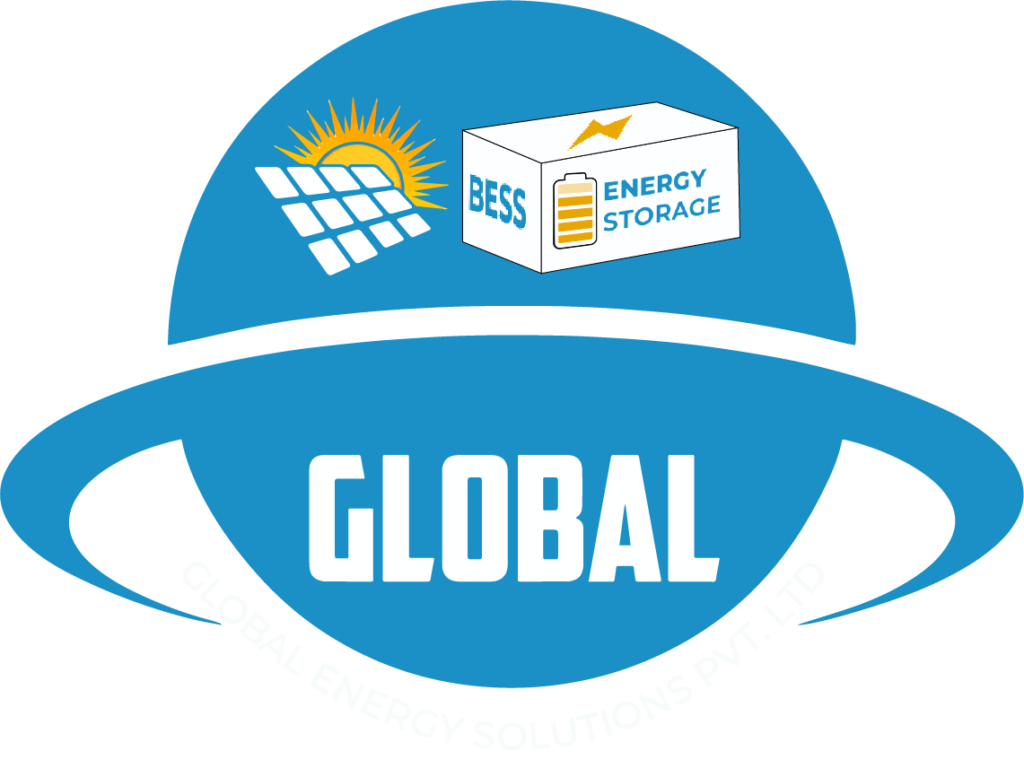How to Choose the Best Solar System for Factories in Pakistan?
In Pakistan’s rapidly energy market, manufacturing and industrial units face rising electricity tariffs, frequent load-shedding and increasing production costs. Considering the current situation, installing a best solar system for factories in Pakistan is the key to ensuring business growth and stable energy.
First, we’ll discuss why industries should shift to solar energy, and then we’ll highlight the key components of a solar system for factories in Pakistan and help you to choose high-quality solar products that ensure reliable performance and long-term savings.
Why Industries should go solar?
- Lower Electricity Costs: Factory electricity rates are very high, but solar power can cut your daytime bills by up to 70% every year.
- Quick Payback(ROI): The money you spend on a solar system usually comes back within 2 to 3 years, and after that, your electricity is almost free.
- Eco-Friendly: Solar energy helps reduce pollution and shows your company cares about a cleaner, greener future.
Key Factors to Consider Before Choosing a Solar System for Factories in Pakistan?
When selecting the right solar system for factories in Pakistan, owners must evaluate several critical points — from panel technology and inverter capacity to structure material and certification standards. Below is a complete breakdown to help you make the right choice.
1. Solar Panels:
Solar panels are the main part of any solar system because they change sunlight into electricity. For factories, it’s important to use Tier-1, Grade-A, IEC, and TUV-certified panels because they work better, last longer, and can handle Pakistan’s hot weather. Here some of the best solar panels in Pakistan you consider for your factories:
- LONGi Hi-MO 7 & X10 Series
- Canadian Panel
- JA Panel
- Jinko Panel
- Trina Panel
These panels come with 25–30 years of performance warranties, and have IP68 rating means water & dust proof. These panels making them ideal for factories looking for stable energy generation and reduced maintenance costs. You can check these panels specifaction at details on top 10 solar panels in pakistan.
2. Solar Inverters:
The heart of your solar system is solar inverter, they convert DC from panels into AC for factory operations. For industrial setups, choose inverters that are IEC 62109 and CE certified, ensuring safety, performance, and compatibility with Pakistan’s grid. you will consider some of the Best Solar Inverters in Pakistan:
- Huawei SUN2000 Series
- Sungrow SG Series
- Growatt MAX Series
- Solis Inverters
- Fox Inverter
- SMA Inverter
These inverters support a smart monitoring system that can be accessed through a mobile app, allowing you to track your solar energy production in real time. Through the app, you can monitor system performance, daily and monthly energy generation, grid export, battery status (if applicable), and even receive alerts or reports giving you complete control and insight into your solar system anytime, anywhere.
3. Solar Structures:
The strength of your solar system mainly depends on its structure design. The solar structure is one of the most critical components of any solar system, as it bears the complete load of the solar panels. If, unfortunately, the structure fails or gets damaged due to high wind pressure, it can also lead to serious damage to the panels. That’s why it’s essential to check both type and material quality of the structure during design. A well-engineered and durable structure with 10 to 15 years of warranty ensures long-term stability, safety, and reliable system performance especially under Pakistan’s varying weather conditions. In pakistan different type of solar structures are designed and you select accoridng to your factory rooft space and strength:
- Standard Structure: if you have flat rooftops enough space with low wind pressure. Standard structures like P1, L2, L3, & L4 are built using galvanized steel or aluminum. The thickness (gauge) of the material is important for strength, and SS Nut bolts make the structure more durable. this is the best choice for industries owner because it reduces overall installation cost.
- Elevated Structure: Elevated solar structures are built higher than standard, the height range is from around 8 feet at the front to 12 feet at the back, depending on wind pressure and site conditions. Because this structure is built using H-beams, mild steel (MS), or galvanized iron (GI) channels along with Mid & End Clamps.It ideal for factories that have limited roof space or wish to utilize the area under the panels so this structure meets your specific requirements, it’s stronger but more expensive..

3. Ground-Mounted:This structure is perfect for large, open ground areas. If your rooftop space is limited but you have sufficient land available, an on-ground solar setup is the best choice for stable and efficient performance. It can also be considered a mini-elevated structure, designed using H-beams and GI channels along SS Nut Bolt with Mid & End Clumps for strength and long-term durability.
4. PV Shed Structure:If your factories have a shed-style roof, this structure is the best choice because it doesn’t require any additional structural design or support. Aluminum P1 structure is commonly used along with integrated cable trays, making the installation neat, durable, and easy to maintain.
4. Solar Cables:
For industrial solar systems, using high-quality cables is essential to ensure safe and stable energy flow. These cables must be UV-resistant, flame-retardant, and TUV-certified to withstand Pakistan’s heat and weather conditions. DC cables connect solar panels to the inverter, and if their size is too small, it can cause voltage drops and reduce efficiency. The best DC cable sizes are 6mm², 16mm², and 25mm², 70mm2 depending on system capacity and distance. On the other hand, AC cables carry electricity from the inverter to the factory’s main distribution board. For industrial setups, thicker copper cables such as 70mm², 95mm²,150mm², 185mm² , 240mm² or higher are preferred to prevent energy loss and overheating.
- Pakistan Cables
- Newage Cables
- Fast Cables
- GM Cables
- Kuka Cables
5. Net Metering — How to Check Your Transformer Capacity?
Net metering is a billing system that allows solar users to send the extra electricity (units) generated by their solar system back to the national grid (WAPDA). These exported units are then converted into credits on your electricity bill. As a result, the energy you produce helps reduce your electricity costs, and in some cases, your bill can even become zero.
However, if you’re unsure about how many kilowatts of a solar system you can install especially when applying for net metering approval — it’s important to understand how this depends on your transformer capacity. According to NEPRA’s regulations, your transformer’s capacity allows only up to 80% load for net metering.
- If your transformer is 100 kW, you can only apply for 80 kW net metering capacity.
- If your transformer is 50 kW, you cannot apply for an 80 kW net metering system, because it exceeds the approved limit.
How Global Energy Solution Designs best solar system for factories:
As one of the best solar companies in Lahore, Pakistan, Global Energy Solution follows a complete and professional process for every factory project:
- Site Survey & Feasibility Study: Our team checks your power usage, roof strength, and available space to plan the right system.
- Customized Design: Using software like PVsyst and Helioscope, we design a system that gives maximum energy output.
- High-Quality Installation: We install every clamp, cable, and structure according to international safety standards.
- Net Metering Setup: We handle the full approval and connection process with your local power company.
- After-Sales Support: We provide real-time monitoring and yearly system checkups to keep performance at its best.
Each Industrial project by Global Energy Solution is designed to deliver top performance, long life, and maximum savings. Choosing the best solar system for factories in Pakistan means focusing on every key part and ensures reliable designs, high energy output, and international-quality standards.
If you want to make your factory energy independent and reduce electricity costs, Global Energy solutions work with best industrial solar power plant ranging from 100kw to megawatt to make sure your trusted partner for a powerful and sustainable future for your factories.
